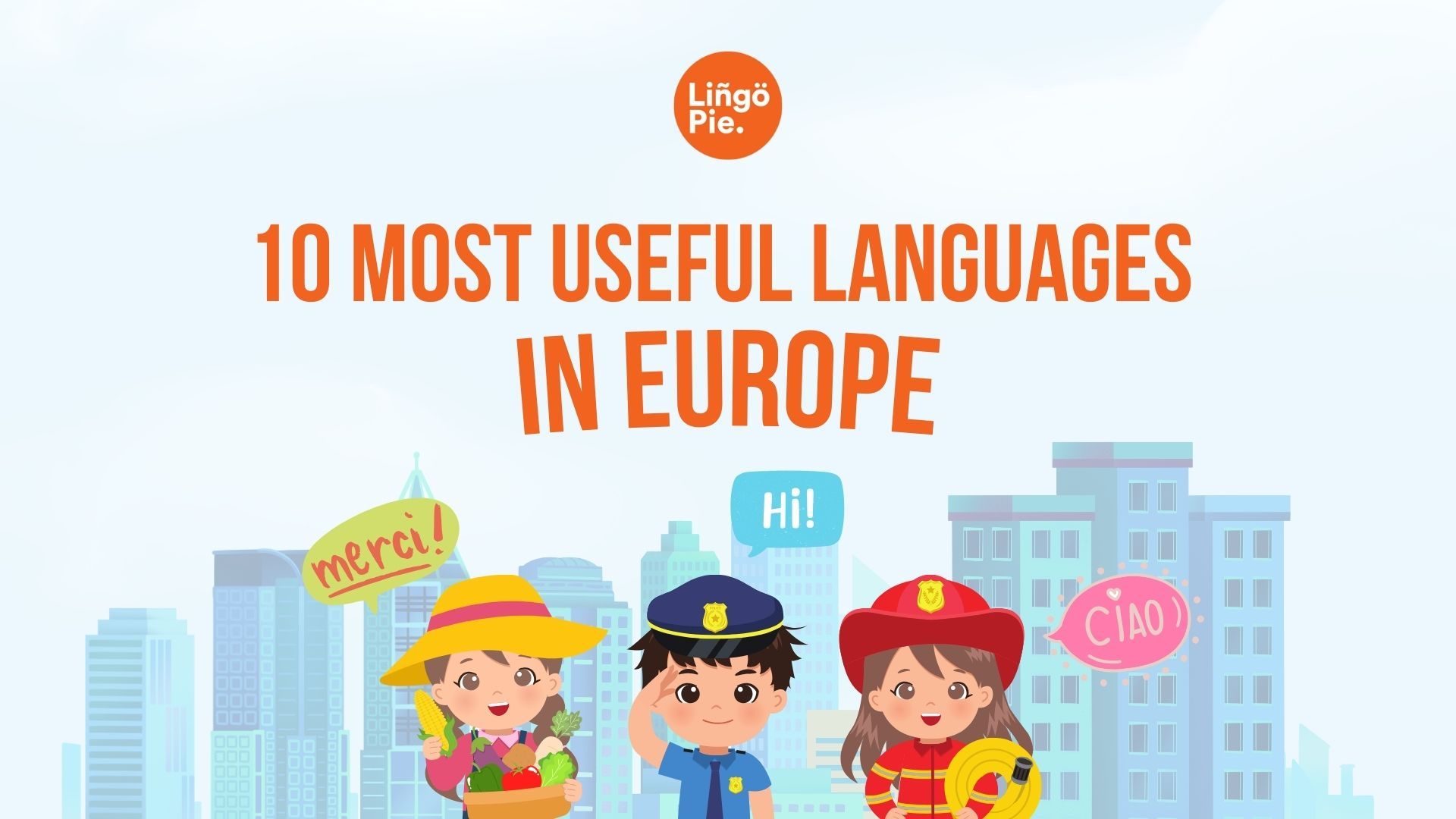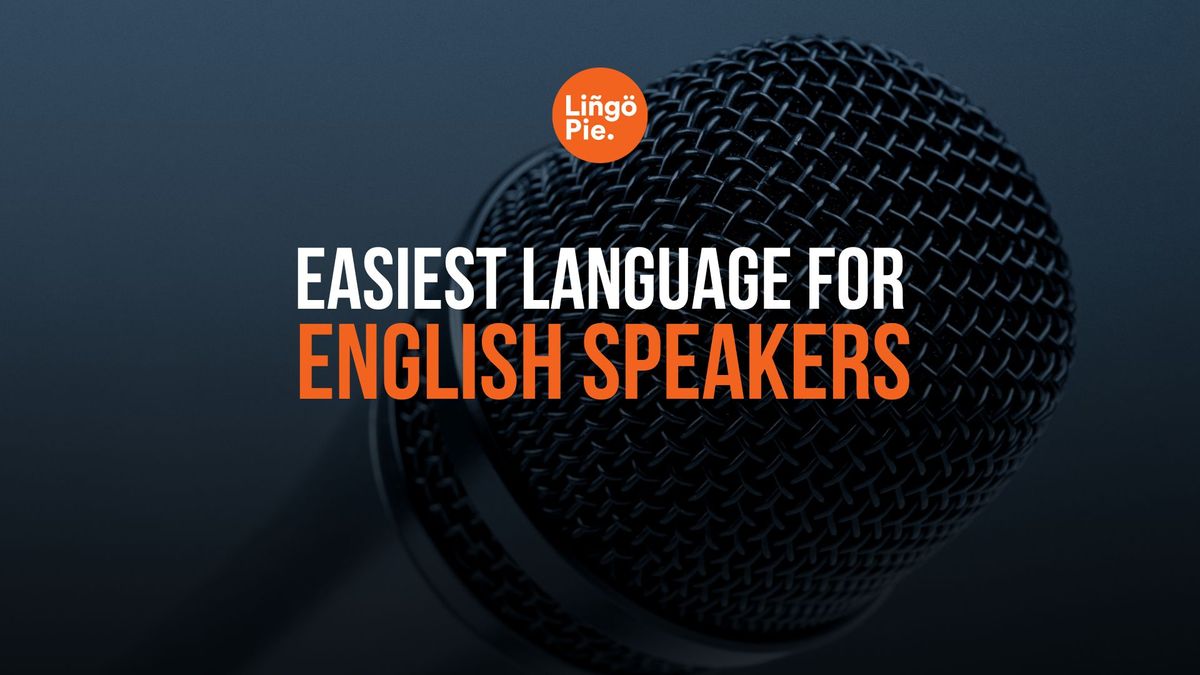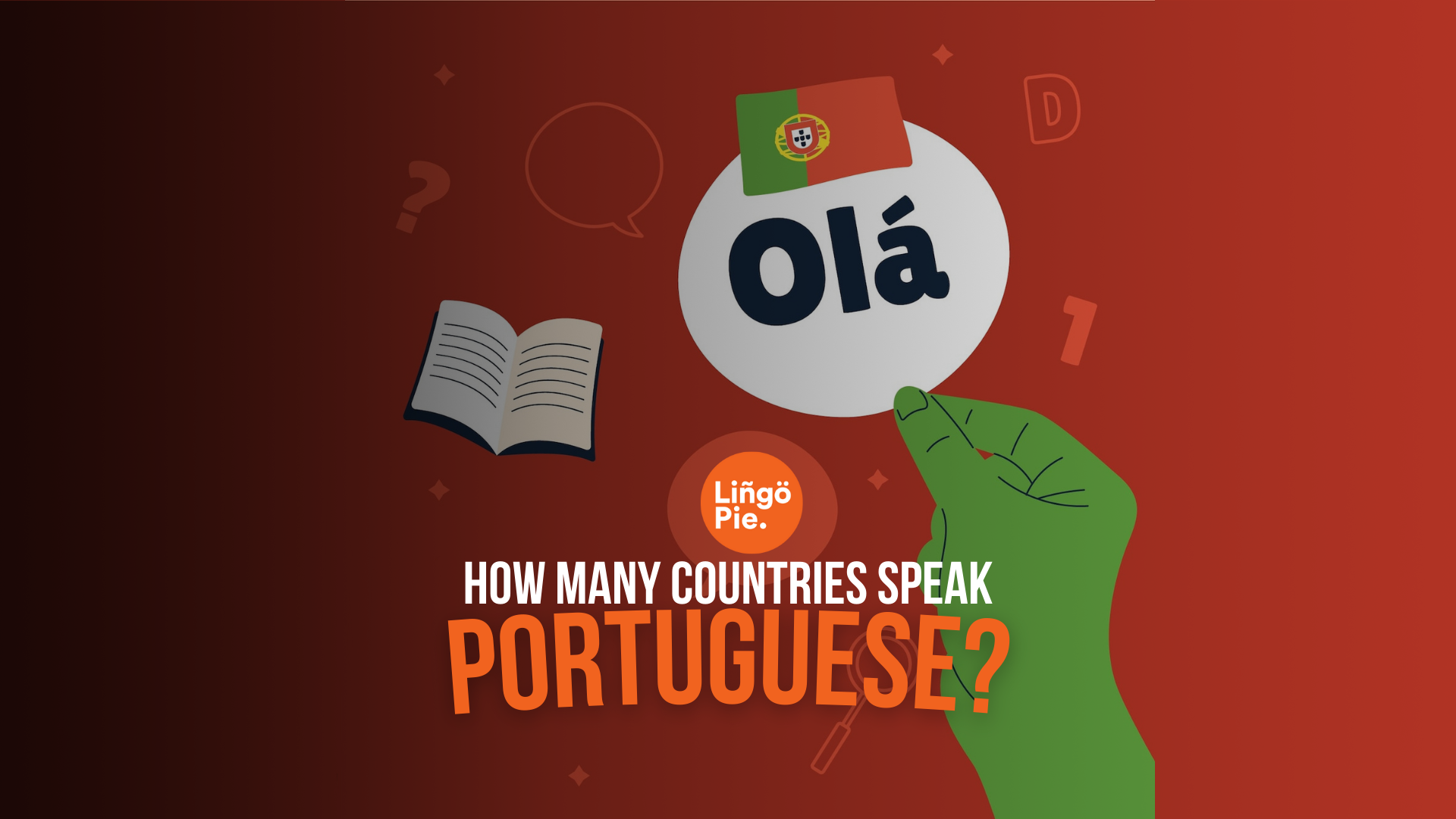Remember that time you confidently ordered coffee in Paris, only to receive a confused look and a croissant instead? Yeah, me too. Learning a new language can feel like trying to decipher an alien code sometimes.
But here's the thing: as an English speaker, you've already got a leg up against other foreign language learners. Turns out, some languages are practically cousins to English!
They share similar grammar structures, borrow vocabulary, or have familiar pronunciation patterns. To help your narrow down the list, I rounded up in this post the 7 easiest languages to learn for English speakers to learn!
Curious? Let's begin!

Factors That Make A Language Easier To Learn For English Speakers
In as much as we'd like to learn a language overnight, that's simply far from reality. According to researchers, what makes language learning a bit tricky is that there are 3 major factors to consider:
- Linguistic Similarities: Languages that share common roots with English, such as those in the Germanic or Romance families, often have similar vocabulary and grammatical structures.
- Pronunciation and Phonetics: Languages with sounds and pronunciation rules similar to English are generally easier to pick up.
- Cultural Exposure and Resources: The availability of learning resources, media exposure, and opportunities for practice play a significant role in how quickly one can learn a language.
What Is The Easiest Language For English Speakers To Learn?
The easiest language for English speakers to learn is often considered to be Spanish. This is due to its similar vocabulary, relatively straightforward grammar, consistent pronunciation rules, and abundant learning resources. Additionally, Spanish is widely spoken, offering many opportunities for practice and immersion.
Top Easiest Languages For English Speakers
1. Spanish

Spanish and English share many cognates, words that have the same linguistic derivation, such as "animal" and "doctor." Additionally, Spanish pronunciation is relatively straightforward, with consistent rules that are easier for English speakers to grasp.
Spanish is also one of the most widely spoken languages in the world, with a vast array of resources available for learners, including language apps, books, courses, and online content.
2. French
French has significantly influenced the English language, resulting in a substantial number of cognates. Words like "information," "hospital," and "restaurant" are used in both languages, making vocabulary acquisition easier.
One of the main reasons this is much easier to learn is due to the historical ties between England and France. Their relationship made a major impact, making French grammar and vocabulary more familiar.
Another plus point? French is a popular language for study, leading to a plethora of educational resources, including language apps, online courses, and bilingual books.
Read Also:

3. Italian
Many Italian words are already familiar to English speakers due to the global popularity of Italian cuisine and culture, providing a built-in vocabulary base. Additionally, Italian shares Latin roots with English, resulting in numerous cognates that ease vocabulary acquisition.
And an even better news? The grammar structure of Italian, while different from English, follows consistent and logical rules. Verb conjugations are regular for the most part, and the sentence structure is similar to English in many cases.
Read Also:

4. Portuguese
Like English, it uses the Latin alphabet, with only a few additional accented characters to learn. The two languages share numerous cognates due to their common Latin roots and historical influences, making vocabulary acquisition easier.
Grammatically, Portuguese shares some structures with English, such as the subject-verb-object sentence order in many cases. While Portuguese has more verb conjugations than English, many are regular and follow predictable patterns.
5. Dutch

Like English, Dutch generally follows a subject-verb-object order in sentences. For example, "I eat an apple" in Dutch is "Ik eet een appel" – almost identical in structure. This grammatical similarity significantly reduces the learning curve, enabling English speakers to form correct sentences more quickly and confidently than with many other languages.
6. Swedish
Pronunciation, while different, follows consistent rules, and the Swedish alphabet is nearly identical to English, with just three additional letters. The language's stress and intonation patterns are also similar to English, aiding in comprehension and speaking.
7. Norwegian
Norwegian shares approximately 4,000 cognates with English, such as "vinter" (winter) and "søster" (sister), making vocabulary acquisition easier. Its grammar simplifies many challenging aspects: verbs have a single present tense form, and there's no conjugation for person or number.
Need further proof? The U.S. Foreign Service Institute categorizes Norwegian as a Category I language, estimating about 575-600 hours of study to reach professional working proficiency.
Read Also:


Tips For Learning A New Language
Learning a new language can be daunting, but it's also one of the most rewarding experiences I've ever had. After years of trial and error, I've discovered four strategies that have revolutionized my language-learning journey. Let me share them with you.
1. Consistent Practice and Immersion
Remember when you were a kid, and your parents nagged you about practicing piano every day? Well, they were onto something. Consistency is the secret sauce in language learning too.
I've made it a ritual to dedicate 30 minutes each day to my target language. Sometimes it's at the crack of dawn with my morning coffee, other times it's just before bed. The key? I never skip a day.
But here's where it gets fun: I've turned my whole world into a language-learning playground. I jam to Spanish top hits while cooking, binge-watch Korean dramas during my lunch break, and even scribble my grocery lists in French. It's like I'm living in a foreign country without leaving my apartment!
2. Use of Language Learning Apps and Online Resources
I've turned my phone into a portable language school. Duolingo for quick practice sessions during my commute, WaniKani for those pesky vocabulary words I can never remember, and more tools for when I need to nail that tricky pronunciation.
But why stop there? I've become a course junkie on Coursera and Udemy. There's something oddly satisfying about collecting certificates in various languages. And don't even get me started on the YouTube rabbit holes I've fallen into - who knew watching "How to make sushi" videos in Japanese could be so addictive?
My latest obsession? Lingopie. It's like Netflix, but for language learners. I'm improving my Spanish while binge-watching telenovelas. Talk about guilt-free TV time!
3. Joining Language Exchange Groups or Finding a Language Buddy
Learning a language can feel lonely sometimes, but it doesn't have to be. I've found my people, my language tribe, and it's been a game-changer.
I took the plunge and joined Lingopie's community. Now, I chat with Maria from Madrid about our favorite tapas, and she corrects my Spanish while I help her with English. It's a win-win!
4. Additional Tips
Along the way, I've picked up a few extra tricks that have turbo-charged my learning:
- I've become the master of sticky notes. My apartment looks like a rainbow exploded, with vocabulary words plastered on every surface.
- I talk to myself. A lot. In my target language. My neighbors probably think I'm crazy, but hey, it works!
- I've become a podcast junkie. My morning jog has turned into a Spanish immersion session. Who says you can't multitask?
Remember, language learning is a marathon, not a sprint. Some days you'll feel like you can memorize a hundred words, other days you'll struggle to remember how to say "hello". And that's okay. The key is to keep going, keep experimenting, and most importantly, keep having fun.
Learn New Languages By Watching Movies Through Lingopie!
Who says learning can’t be fun? Grab some popcorn and immerse yourself in foreign films or binge-watch TV shows. That's the mission of Lingopie, making language learning fun and immersive!
Lingopie makes learning a new language fun and effective by using real TV shows, movies, and documentaries. It offers interactive subtitles, so you can click on any word to get an instant translation and pronunciation. If this sounds fun to you, download Lingopie from the App Store or Play Store now and get a FREE 7-day trial!
Frequently Asked Questions
1. What is the most useful language to learn after English?
Spanish is often considered the most useful language to learn after English. It's the second most spoken language in the world, widely used in many countries, and offers many opportunities for travel, business, and cultural exchange.
2. Which language has the closest grammar to English?
Dutch has the closest grammar to English. Both languages share Germanic roots, leading to similar sentence structures and vocabulary, making it easier for English speakers to grasp Dutch grammar.
3. What is the hardest language for English speakers to learn?
Mandarin Chinese is often regarded as the hardest language for English speakers to learn. It has a complex writing system with thousands of characters, tonal pronunciation, and different grammar rules, making it challenging to master.








![Is Lingopie Free? Plans, Pricing & Free Trial Guide [2026]](/blog/content/images/size/w300/2026/01/Is-Lingopie-Free.jpg)
![How To Gift Lingopie: One-Year vs Lifetime Subscription [GUIDE]](/blog/content/images/size/w300/2026/01/lingopie-gift-subscription.jpg)
![What is Lingopie? Complete Platform Guide [2026]](/blog/content/images/size/w300/2026/01/What-is-Lingopie.jpg)